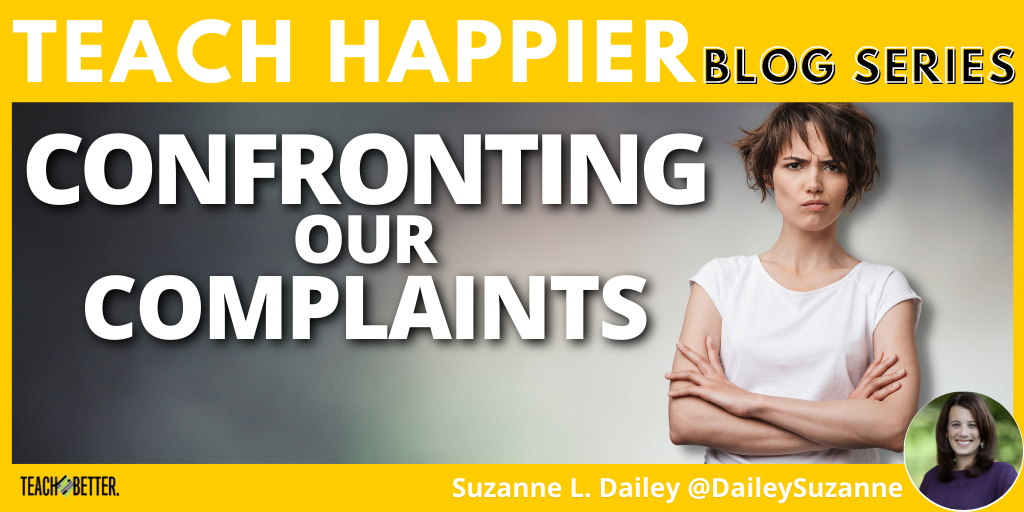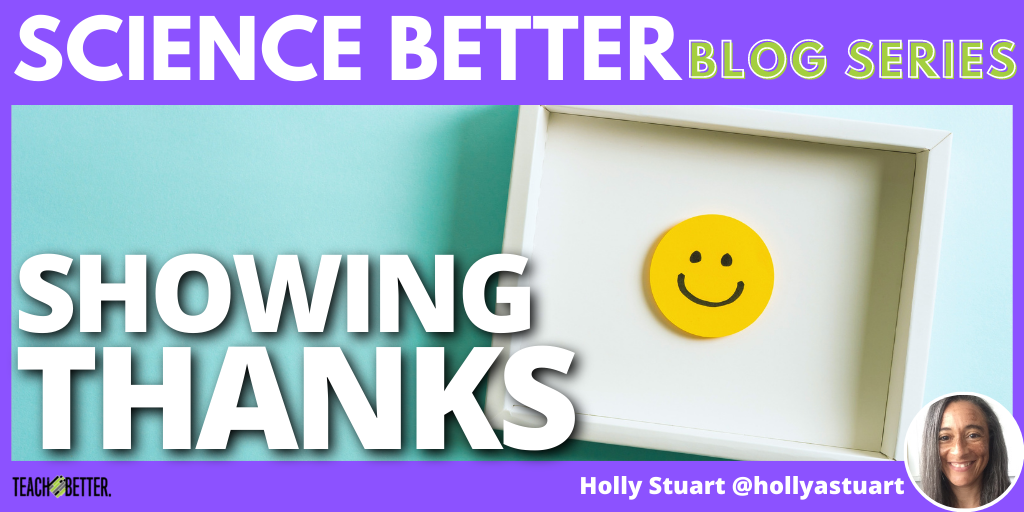TL;DR: Gratitude helps wire our brains to look for the good. Research has shown that, on average, people complain about once a minute during a typical conversation. The more we complain, the more we wire our brains to focus on the negative aspects of our lives. Try to go one full day without complaining. Constant Complaining In this Teach Happier … Read More
5 Radical Self-Care Lessons for Educators
TL;DR: Burnout is not “this is just how it is.” We need to prioritize our own wellness. Self-care isn’t selfish and it’s not about temporary relief. You must put the work in to maintain boundaries and demonstrate self-care. Set office hours for yourself. Embed wellness routines into your classroom to model self-care for students too. Burnout Six years ago, I … Read More
Science Better: Showing Thanks
TL;DR: It is important to reflect on who has had a positive impact on your education journey. I want to thank the “giants” who have shaped my views of science and education. Reach out to the people who have helped you become the amazing educator that you are and thank them! Mr. Anthony During the month of November, I tend … Read More
Moral Imperative: Is Your School Team Clear About What Must Be Done?
TL;DR: School teams work together and set goals for improvement. A school’s moral imperative should be discussed and clarified as a part of school improvement. School teams often discuss test data, learning targets, standards, lesson plans, and school culture. When was the last time your school team discussed its moral imperative or purpose? In the fall of 2021, the total … Read More
What Do High-Performing School Teams Embrace?
TL;DR: High-performing schools use the talents, strengths, and knowledge of their staff to continue to improve and grow. Progress should be monitored with various scoreboards to see if the efforts for improvement are effective. High-performing schools embrace a mindset that focuses on what could or should be different, rather than hoping for improved outcomes. There are two types of schools. School … Read More






